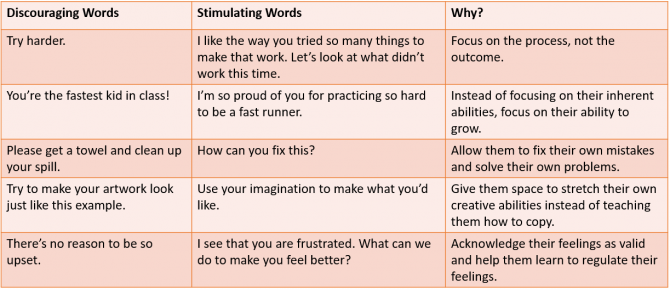By FPL_Staff
Having a growth mindset means that one believes that hard work, patience, and self-compassion can improve one’s abilities. Often, children from toddlerhood to high school are praised on their outcomes alone. For example, “You are so smart!” or “You draw so well!” Praising only the outcome may lead that child to believe that, when they fail, they are no longer smart or artistic. It is beneficial to emotional and developmental health to tie children’s sense of success to their abilities to learn and grow.
Of course, praising one’s effort without addressing whether they learned or succeeded can be as empty as praising only outcomes. To encourage development of children’s growth mindset, it is important to praise the effort and address the shortcomings. For example, “I’m proud of you for working so hard on this. Let’s look at your understanding and see how we can help you improve.” This type of praise helps build their confidence while also providing a chance to learn and grow.
Developing a growth mindset is as important in early childhood as it is in school-aged children. Does your toddler get frustrated when something doesn’t work out the way they wanted, like maybe a tower they were building fell down? Does your preschool-aged child get upset when they’re not able to do something as well as their friend? These are opportunities to help your children learn that they are not failures or less-than. They are simply still learning. Below are some ways to say things so that your little one is encouraged to continue to grow.
Stories can be an amazing way to help children develop new skills. Here are some picture books that encourage a growth mindset:




Add a comment to: Growth Mindset in Early Learners